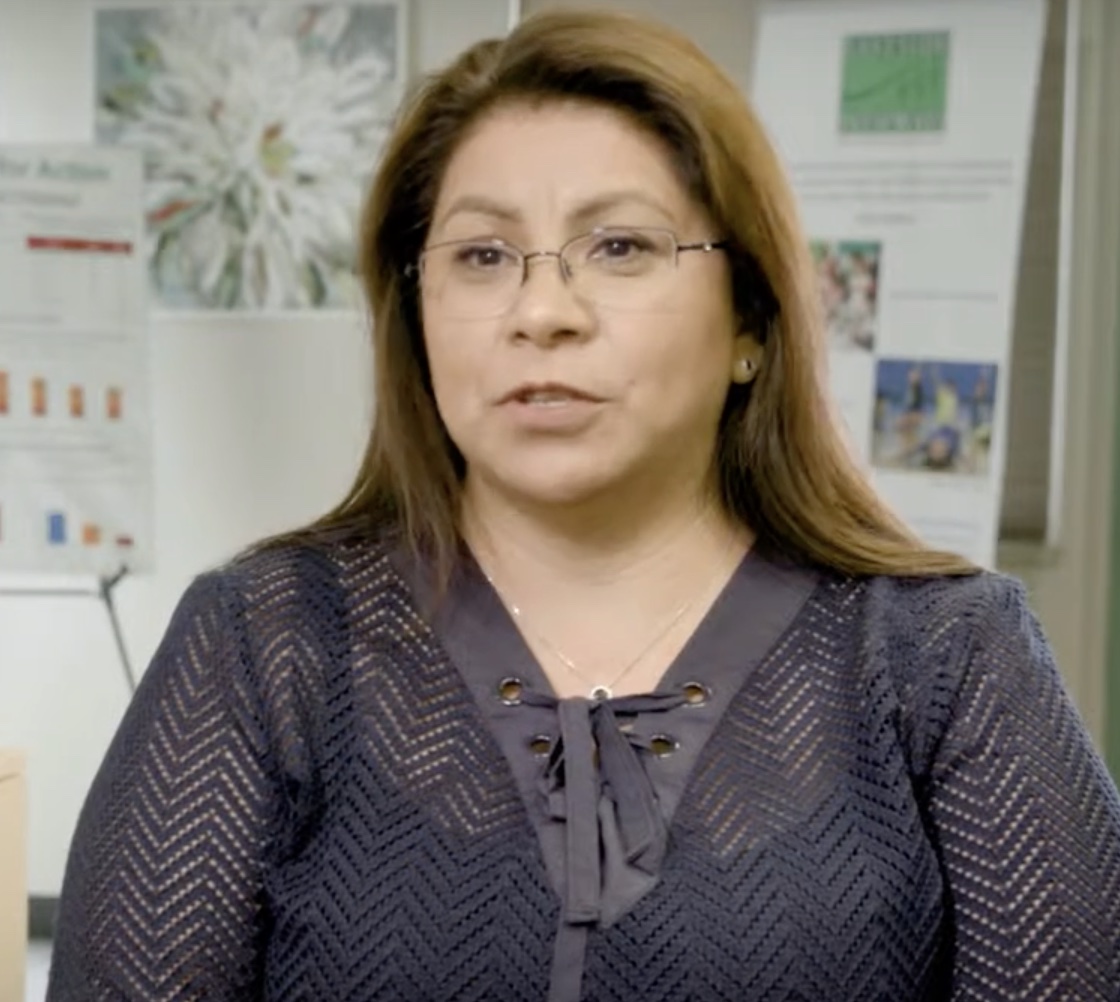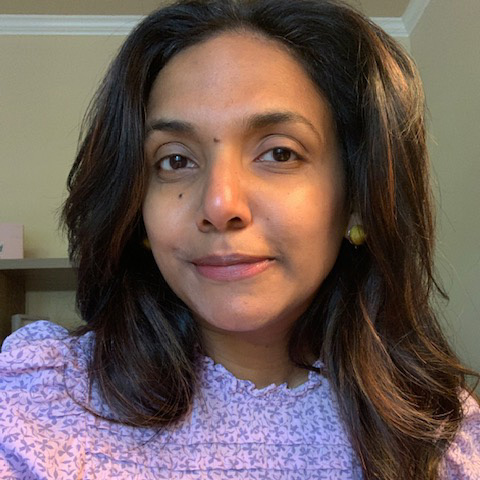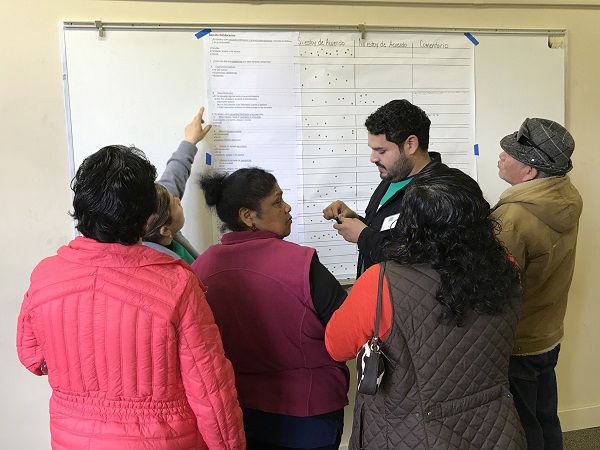In 2016, Alma Gonzalez, a passionate Latino community leader and volunteer, along with the community organization Eastside Pathways, identified the need to support their area’s Latino community in becoming advocates and agents of change for themselves and their children. Eastside refers to a large swath of the greater Seattle urban area on the east side of Lake Washington, and the Latino community there was all too aware of the early learning opportunity gaps that can put young Hispanic/Latino children up to a year behind in reading and math skills by the time they enter kindergarten, with even larger gaps for low-income students. This situation is not specific to the Eastside; it’s endemic throughout the U.S. and has a devastating effect not only on the individual children, but on school systems, the workforce and the economy.

Data from WaKIDS, a tool employed by Washington school districts to assess kindergarten readiness, along with surveys and focus groups within the Eastside Latinx community, underscored the need for information about early learning resources to help the community to close these gaps.
Eastside Pathways was created in 2011 as a partnership of public, private, nonprofit and faith-based organizations working as a collective towards better outcomes for children, youth, and young adults from cradle to career (0-26 years). The organization has now formed partnerships with 84 different Eastside entities and individuals, united through common goals and strategies to maximize opportunity for each child and young person in the region.
With the help of family and friends, Gonzalez formed the program she called NISO in 2018—named in honor of her children Nick and Sophia—so that members of the Latinx community could have a seat at every table where decisions affecting their lives were being made.
Sharing that goal, Eastside Pathways funded the introduction of the Promotores model to train and support community members to assume roles that help them amplify the voices and needs of their community. Ten Bellevue residents from Spanish-speaking communities were selected to go through specialized instruction and receive certification as promotores, serving as a bridge between Latinx families, local organizations and providers in East King County. The promotores model has been used throughout the U.S. and South America for years—somewhat synonymous with “community health worker”— and is often referred to as servicio de corazón, service from the heart.
Gonzalez was a lead promotor during the initial project and spent six months with her cohort of promotores convening community members and conducting extensive surveys to pinpoint what community members needed—and what they already knew—around issues such as healthcare, education and housing. The surveys discovered that parental stress was a huge factor in the Latino community, despite a number of resources available to them.
Gonzalez says many community members have limited knowledge about what assistance might be available for them or how to access it—and even if they did, many don’t feel empowered enough or confident enough to navigate the often-complex and inequitable systems.
Bridging the Gap
Gonzalez and NISO, with an innovation grant from King County’s Best Starts for Kids program, partnered with Eastside Pathways to develop the Eastside Early Learning Facilitators (EELF) program using the promotores model. EELF takes a two-pronged approach to addressing the community’s needs. The first provides for trusted community advocates to visit the families in their homes and share information about the early-learning and family services available in East King County. The goal, says Eastside Pathways’ Community Impact Manager Sandy Nathan, is not only to reduce the parents’ stress, but to build their confidence in navigating systems.
“Systems are usually seen as something separate from us,” Nathan says. “‘Oh, the system is broken.’ But we hold that every adult working within a system is responsible for it. They are the system. What we are trying to review and modify is how systems and adults can work differently, so that we can see better outcomes for our children, youth and young adults.”

She explains, “Within the Eastside Pathways partnerships, we bring together these diverse systems to speak with each other to address, for example, the gaps and inequities that our Black and brown children are experiencing. We know that pre-K doesn’t speak to K-to-5 and K-to-5 doesn’t speak to middle school and so on. That’s just one example; it’s true in other systems as well. What Eastside Pathways does is to ask all the stakeholders to think strategically about breaking those silos, reducing the duplicative work and truly focus on what our community needs and how we can co-create solutions.
“The second critical thing we wanted to do as a part of the EELF program was to make sure the information sharing wasn’t a one-way channel. At the core of this work is the commitment that everyone this program serves feels seen, heard and valued. The commitment expected from our Early Learning Partners who have services for children from 0 to 5 was to be willing and ready to hear from the community on what’s working and what’s not working.”
Nathan adds, “For more than two years now, we have convened the Providers’ Council, which I facilitate, where early learning providers from health, basic needs, education and parent-child services come together bimonthly to review and reflect on the feedback that we receive from NISO and the facilitators. The commitment is for the providers to take what they learn back to their organizations, review their policies, practices and procedures, and modify them, if necessary, so we can build a stronger, culturally conscious collective system. That is collective impact, with all early-learning stakeholders coming together to listen and mend their respective systems so our community can be better served.”
The Best Starts for Kids grant allowed NISO to engage members from the community as staff by paying them for the time they spend as part of the program that’s

serving their community. The program’s effectiveness is apparent in the fact that 65 percent of adults the program has served said they would like to explore the opportunity to become promotores themselves. NISO doesn’t keep those “graduates” on forever. Instead, the program regularly trains its community advocates, gives them their wings, then starts the process with another cycle.
“The idea is to keep training more leaders for the community to create change agents” Gonzalez says. “Our promotores use those skills and that training, and they step up and get a better job and improve their lives. This is how we all grow together. My mission as a director of NISO is to see that each group of promotores is trained with everything they need to succeed and that we mobilize the community.
“I remind our teams all the time that we have to keep our eyes on the prize: To make sure all of our kids are ready for kindergarten and ready to learn and thrive through school. For that to happen, we have to take care of ourselves and our families.”
The EELF program is now on its fourth family cycle, having served close to 100 families and more than 125 children aged 0 to 5 in the last two years. Around 15 Early Learning Providers have been actively engaged in the Providers Council. Evidence of the program’s success lies in the numbers and in stories of how members of the Latino community have been empowered to advocate for themselves and their families. All of this has been possible through the collective efforts of the EELF facilitators, NISO and Eastside Pathways Partnership, with the support of funds from King County. Gonzalez says that, though the initial program has focused on the Latinx community, the intention is to expand to other minority communities in the future.
King County Best Starts for Kids A voter-approved initiative to support every baby born or child raised in King County to reach adulthood happy, healthy, safe and thriving.
WaKIDS Washington Kindergarten Inventory of Developing Skills—a kindergarten transition process that includes observational assessment of incoming kindergartners’ readiness in six domains social emotional, physical, language, cognitive, literacy, and math.
Passing the Pandemic Test
When the pandemic hit in the spring of 2020, NISO and Eastside Pathways were knocked for a loop, along with much of the rest of the world. But that adversity ended up proving precisely how valuable the promotores model was. Though surveys had shown that members of the Latino community preferred to get their information in person from people they trusted, the pandemic quickly brought an end to that avenue.
Within weeks, NISO, Eastside Pathways and Best Starts for Kids had combined their efforts and created a plan. A team of 14 promotores—many of whom didn’t even know how to open an email at the time—were provided with iPads, trained how to use them, then began meeting online. They redefined what “in person” looks like and relied on the relationships they had cultivated to support families through the remote setting.
“I had never heard about Zoom before,” Gonzalez said. “And now, we’re all Zoom experts. We communicate with the families by Zoom, by WhatsApp videos, by phone. There was such need, and everything was closed. People needed help with food, with rent and especially with information more than ever.
“‘Where do we go if something happens with COVID?’ ‘We’re unemployed now. Where can we go for help with bills?’ ‘Where can we get diapers and the things our children need?’ And because the promotores come from the community, we were a trusted voice and we’ve been able to keep that communication open and keep serving our families throughout the pandemic.”
Servicio de corazón, indeed.
To learn more about this program, contact Sandy Nathan (sandy@eastsidepathways.org) and Alma Gonzalez (agonzalez@nisoprograms.org).

K.C. Compton
K.C. Compton worked as a reporter, editor and columnist for newspapers throughout the Rocky Mountain region for 20 years before moving to the Kansas City area as an editor for Mother Earth News. She has been in Seattle since 2016, enjoying life as a freelance and contract writer and editor.



